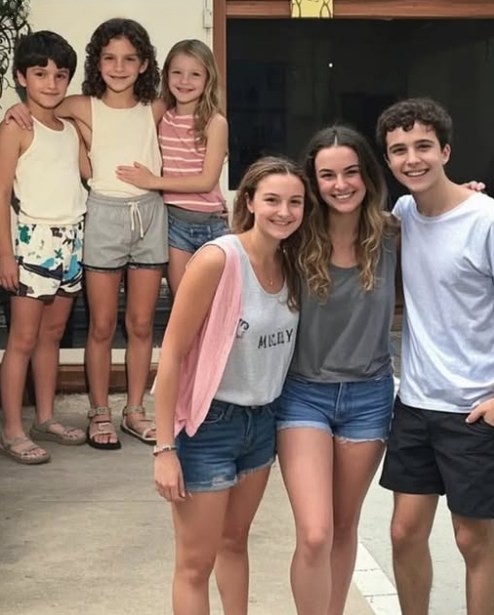When I was five, the world as I knew it vanished in a single, cruel night. My siblings and I lost our parents in a sudden accident—no goodbyes, no explanations. One moment, laughter filled our small family café. The next, we were orphans, standing in silence as strangers delivered the news that would change our lives forever.
The café closed within weeks. Our home was sold off to cover debts we didn’t even know existed. Everything tied to our parents—photos, furniture, that warm scent of freshly baked bread—was stripped away. All that remained was each other: my brother Liam, nine years old and already carrying the weight of the world, and Emma, just seven, who clung to me as we were taken to an orphanage.
At night, huddled in our shared room, Liam would whisper, “I’ll take care of you. I promise.” And he did. He gave up his share of food so Emma and I could have more. He shielded us from bullies. He made us feel safe when everything around us was uncertain. One evening, after yet another hard day, he sat us down and made a vow that would define the course of our lives: “Mom and Dad had a dream. One day, we’re going to get the café back.”
It didn’t matter that we were just kids. We believed him.
Eventually, the system separated us. Emma was placed with a foster family first. I cried and begged her not to go, but she promised to visit every week—and she did, bringing sweets, toys, and stories of a life that felt far away. Then it was my turn. I packed my few belongings, including a teddy bear Emma had given me, and left, tears blurring the sight of Liam’s brave, silent face. Before I walked out, he crouched to my level and whispered, “We stick together. No matter what.”
We made social workers promise to keep us close. And somehow, they honored that. We lived in different homes, but near enough to meet regularly. We stayed a family in every way that mattered.
Liam, true to his word, got a job the moment he turned sixteen—stocking shelves, cleaning gas stations, whatever it took. Emma joined him soon after, waitressing late into the night. I was too young to help, but I watched them sacrifice everything for a dream I barely understood.
By eighteen, we were all out of the system and renting a tiny apartment together. Liam took the couch without complaint. We had little, but for the first time in years, we were under the same roof. We worked nonstop—double shifts, weekends, holidays—saving every cent. We didn’t eat out. We didn’t buy new clothes. We poured our lives into one shared goal.
And then, one evening, we signed the papers. The café was ours again.
Walking into that old space, we could almost hear our parents’ voices. The floors creaked, the walls were faded, but to us, it was sacred ground. We scrubbed, painted, and repaired every corner. We opened the doors with our hearts wide open.
People noticed. Customers returned. Not just for the food, but for the love in every detail. We weren’t just running a café—we were rebuilding a legacy.
And when I was thirty-four, we went even further. We bought back our childhood home.
The moment we stepped through the front door, our past rushed back—laughter, warmth, and memories that had never truly left us. Emma whispered, “They should be here.” And Liam answered quietly, “They are.”
Today, we each have our own homes, careers, and lives. But every weekend, without fail, we gather at that house for dinner. And before we eat, Liam raises his glass and says what our parents once did: “Only in unity can a family overcome any problems and obstacles.”
And together, we’ve proved it.
